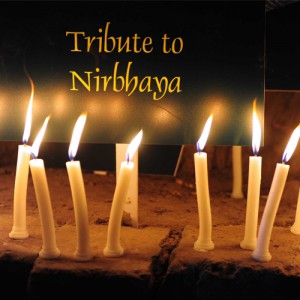On Nirbhaya’s second death anniversary, mother demands societal change
 NEW DELHI : As the nation on Monday observed the second death anniversary of Nirbhaya, her mother demanded social change along with a stronger implementation of juvenile laws.
NEW DELHI : As the nation on Monday observed the second death anniversary of Nirbhaya, her mother demanded social change along with a stronger implementation of juvenile laws.
“If our society changes, 50% of crimes will stop. Strict laws need to be in place for crimes against women,” said Nirbahaya’s mother.
“Our society is in a need of strong change. In majority of cases, it is some relative, friend or somebody known. The crimes against women will not stop till the time the mindset in society is changed. The law also needs to be implemented more strictly in such cases,” she added.
Our demand remains the same with the government. The government needs to change their law methods. It is not about just one case. You can pick any case from that date, and majorly, juveniles are involved because they know they cannot be punished.
She also talked about the recent acid attack case on a Delhi doctor.
The Delhi Police had earlier this week arrested a colleague of the woman doctor along with three other men, two of them juveniles, for perpetrating the crime.
She also urged Prime Minister Narendra Modi to start something similar to the ‘Swacch Bharat Abhiyan’ in order to make the nation crime free.
“I would like to appeal to the Prime Minister to take up steps to make country crime free, just like the way he has successfully launched Clean India campaign,” she said.
On December 16, 2012, a 23-year-old physiotherapy student was brutally gang raped and by six men, including a juvenile, in a bus. The woman later succumbed to grave intestinal injuries at a Singapore hospital, where she had been airlifted for specialised treatment.
The case, which branded New Delhi as the ‘rape’ capital of the country, pushed authorities to enact tougher laws, including allowing for death sentences to be handed down to repeat rape offenders.
The four adults accused in the case were awarded them death penalty on September 13, 2013, with the Delhi High Court upholding the death penalty in March 2014.The case is currently with the Supreme Court after the convicts appealed against the judgement.

